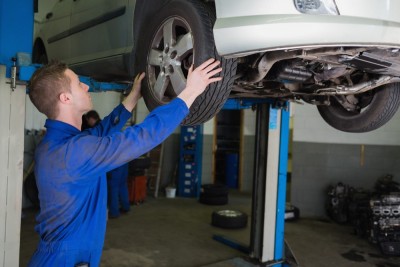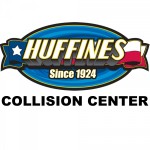What is the Difference Between a Tire Rotation and an Alignment?
Many people have been taking their car to the same place and paid for both tire rotations and tire alignments, but they have no idea what the difference between the two actually is. At Huffines Collision Center, we're happy to be giving you the facts, so that you will always know what the difference truly is between a rotation vs. an alignment. Whether you live in Lewisville, TX or anywhere else in the world, knowledge like this can surely make you a more confident and savvy car owner.
In short, the main difference between a tire rotation and a wheel alignment is that the former is a regular maintenance item and the latter is only needed as a repair.
As DriverSide.com says, our wheels and tires, like daily walking shoes, can wear unevenly and eventually stop working as designed. 
That’s why staying on top of these services means a car can reach its maximum performance and safety levels. But, while the end result of rotations and alignments are similar, there are some important differences between the two procedures.
A tire rotation must be done automatically after the amount of time recommended by the tire manufacturer, depending on the type of car and also where you drive. A wheel alignment is only needed when your vehicle shows signs of being out of whack.
Not understanding the difference can mean severe damage to your vehicle, according to CarsDirect.com. Tire rotation means moving the wheels and tires from one spot to another to ensure their even use, since a vehicle’s weight is different in the front and the back, and driving leaves distinctive erosion patterns on the tires.
Because front-wheel drives pull from the front and rear-wheel drives do the opposite, balancing this out requires moving the front wheels to the back, and vice-versa. This will also even out your braking, making it more effective and balance out the handling. Plus, evenly worn tires translate to a smoother ride, increased traction, better gas mileage and longer tire life.
Uneven tread can also result from bad wheel alignment or over- or under-tire inflation. A wheel alignment on the other hand, has to do with how the wheels and the steering wheel line up.
If your car is pulling to the left or right , it needs an alignment, and, if you continue driving it in this condition, the damage caused will eventually mean needing new wheels. Wheels can get out of alignment from natural wear or a close encounter with a pothole or a curb, that results in suspension damage.
Other signs of misalignment include unevenly wearing tires, a crooked steering wheel and the car vibrating at higher speeds.
Keeping your wheels well-aligned benefits your vehicle in several ways, including improved handling and gas mileage, reduced tire and steering column wear. Your tire warranty may also require a wheel alignment in a certain time frame, and failing to do this basic maintenance could void the warranty.
We strive to bring you relative content from Huffines Collision Center in Lewisville , TX .
Sources: Car Talk, DriverSide.com, CarsDirect.com.









Social